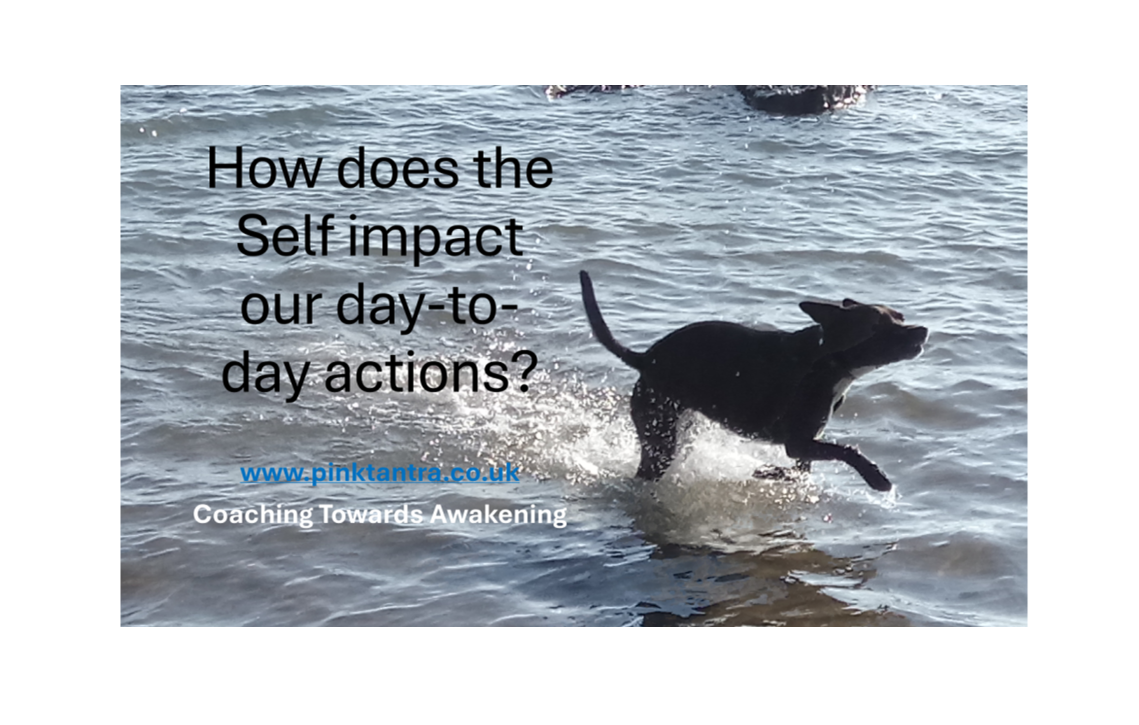How does the Self impact our day-to-day actions?
I have been reading ‘Be as you are: The Teachings of Sri Ramana Maharshi’ where the Self is defined as “impersonal, all-inclusive awareness”. In Indian tradition the Self is Sat-Chit-Ananda, Being-Consciousness-Bliss. But what does that mean, and what implications does this have?
 Being is often referred to as I AM, or the awareness of I AM. This is not from the position of a finite person having an experience of awareness (an ‘I-thought’) but infinite awareness having an experience of a person (I am that I am).
Being is often referred to as I AM, or the awareness of I AM. This is not from the position of a finite person having an experience of awareness (an ‘I-thought’) but infinite awareness having an experience of a person (I am that I am).
The seat of consciousness, it’s centre, is the Heart. Not physically, symbolically (although Ramana Maharshi does often refer to the right side of the chest as a place to direct attention). This is direct knowing awareness (Jnana) where there is no localised knower, no separate self ‘I’.
When we speak of Bliss, this is not Bliss as we often see it portrayed in the West, following a 1970s drug induced altered state of affairs. Rather, it might be better termed happiness (but again not a happiness derived from any external experience). This is more like a silent peace (this is self-realisation) – Mouna – sometimes referred to as Mouna-Samadhi, or the samadhi of silence (the peace that surpasses all understanding).
This is our true nature, our natural state. No altered state can take us to our natural state. So, how do we know the Self, our true nature?
We simply need to let go of our false identifications, often referred to as our ignorance, ‘I-thoughts’, the ego (which is just a bundle of thoughts). When we realise there is no thinker behind the thought, no doer behind the deed, we reach that place of liberation (Mukti) which is experienced not BY the self ‘I’, but AS the Self, where we be still, be silent, be peace.
The perennial question is, how do we let go of our false identifications? For Ramana Maharshi it is through self-enquiry, similar to Sri Nisargadatta Maharaj (from the Navanath Sampradaya path, which Sanskrit works are important sources of Tantrik ideas, especially Gorakshnath, one of the nine Masters). We see this reflected in the West today through people such as Adyashanti and Rupert Spira, amongst others, who start with the direct question, Who or what am I?
This question is not posed to the mind, but to bypass the mind, to reveal that there is no ‘I’. For Ramana Maharshi individuality is equated with the mind, the mind with the ‘I-thought’. Once we realise there is no ‘I’ there can be no ‘I-thought’, no mind, no individuality, which leads us back to the source, the Heart Centre, the Self.
The further question, or fear possibly (?) for many people, is, how can we live our day-to-day life if there is no ‘I’? Ramana Maharshi is critical of renunciation of our worldly responsibilities, “renunciation is always in the mind, not in going to forests or solitary places or giving up one’s duties.” For him renunciation is of desires and attachments, “a man attached to desires cannot get solitude wherever he may be, whereas a detached man is always in solitude.”
This has implications for us as sexual beings, where brahmacharya, often considered to mean celibacy, is actually “one who dwells in Brahman”, so when we dwell in Brahman desires disappear. Nevertheless, we would still perform our duties (meaning, for Ramana Maharshi, within marriage), although he does say “Even if you have (sex), it does not matter so long as you do not think afterwards that you have done so (sinned). The Self is not aware of any sin and renunciation of sex is internal, not merely of the body alone.”
As we come back to our source, the Heart Centre, any ‘I-thoughts’ of sex would be replaced by an impersonal, all-inclusive sense of love, where we dwell in Brahman, abide in the Self. For men-who-love-men our actions would, then, likewise come from our true nature rather than desire.
This reflects what I wrote in Sex and Embodied Spirituality, where the point is not so much whether we have sex or not, but how much we see the localised sensing instruments (ie, the person/s) as subject-object or as Being-Consciousness. So, are our actions coming from ‘I-thought’ (desire) or from Self (impersonal, all-inclusive awareness)?
Bringing it all together
The Self is impersonal, all-inclusive awareness. When we come to this realisation the Self subsumes the ‘I-thought’, ego, and we reach Mouna-Samadhi, silence, peace. Our day-to-day life is lives as before, only now from that impersonal, all-inclusive place of awareness where wisdom lies. Our actions then would naturally be in line with Brahman, coming from the Self, our true nature (often referred to as spontaneous).
Connect on Twitter / Facebook / JustFor.Fans
Email me direct if you are interested in mindful, embodied, trauma-informed, or spiritually-informed coaching, or if you would like to join my new Pink Tantra Towards Awakening group for chat rooms, video channels and in-person workshops around tantra and intimacy practices robert.pinktantra@gmail.com
See my personal development / personality profiling book DISCover the Power of You published through John Hunt Publishing Ltd, 2017. ISBN: 978-1-78535-591-2
And for a bit of light reading, see my first historical fictional novel Fermented Spirits published through Austin Macauley Publishers, 2022. ISBN-13: 978-1398437159